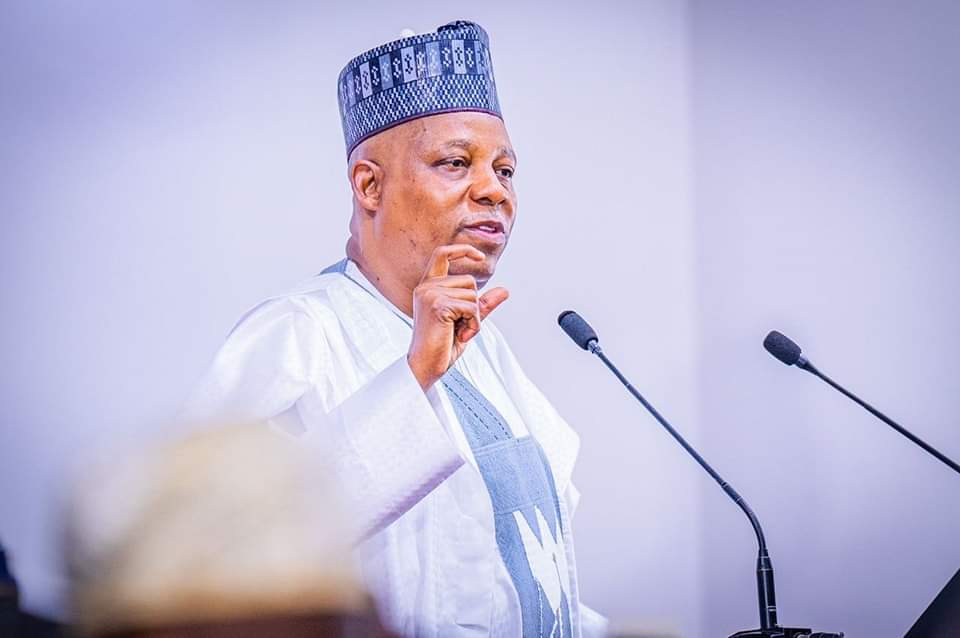- Vice President Kashim Shettima reaffirmed Nigeria’s commitment to leveraging the $130 billion global hydrogen market through partnership with Germany.
- Shettima emphasized transitioning from fossil fuels to green energy for sustainable development and inclusive economic growth.
Vice President Kashim Shettima has reaffirmed Nigeria’s commitment to leveraging the $130 billion global hydrogen market by partnering with the Republic of Germany to develop its green energy sector.
The vice president highlighted that this initiative aligns with Nigeria’s renewable energy objectives and the global transition from fossil fuels to green sources.
Senator Shettima made these remarks on Friday during a meeting with a German delegation led by Mr. Till Mansmann, a German Parliament and Hydrogen Commissioner member at the Federal Ministry of Education and Research.
Emphasizing the significance of a robust partnership between Nigeria and Germany, the vice president stated, “We cannot overlook the fact that we need to transition from fossil fuels to green energy for sustainable development and inclusive economic growth.”
“We appreciate your collaboration, and there are ample opportunities for us to work together towards developing the $130 billion global hydrogen market projected by the World Bank to grow at 9 percent annually,” he added.
Shettima expressed optimism about the potential of hydrogen to revolutionize various industries in Nigeria, including fertilizer production. He highlighted the readiness of the Federal Ministry of Science and Technology to collaborate with German authorities to advance the hydrogen market in Nigeria and across the continent.
“Partnering to develop the hydrogen market in Nigeria will have a positive ripple effect across Africa. Nigeria’s success will inspire the continent. President Tinubu is a reliable partner in this. Leadership entails providing solutions to a country’s challenges,” he affirmed.
In his remarks, Mr. Mansmann underscored the importance of collaboration with Nigeria and institutions like the University of Nigeria, Nsukka (UNN) in realizing the objectives outlined in Germany’s National Hydrogen Strategy.
